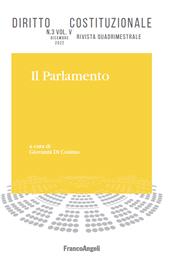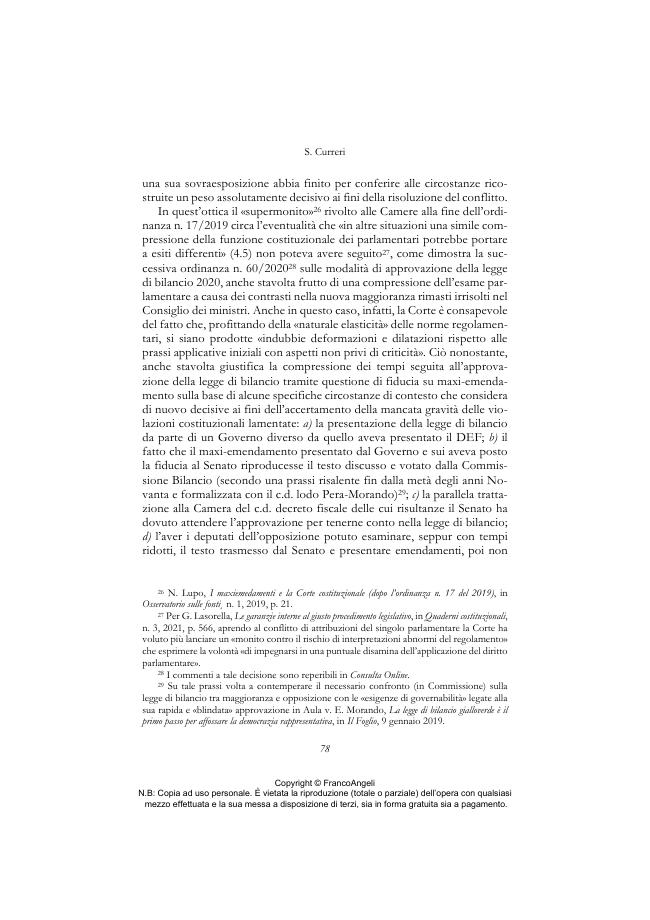Parlamento e Corte costituzionale
P. 63-93
Il saggio si concentra sulla giurisprudenza costituzionale in tema di vizi formali del procedimento legislativo, con particolare riferimento a quella recente sulla decretazione d'urgenza e sulle modalità di approvazione della legge di bilancio, evidenziando come la essa abbia sostanzialmente rinunciato a tutelare i pochi ma essenziali momenti dell'iter legislativo sanciti dall'art. 72 Cost. Questa sostanziale rinuncia della Corte al suo potere di controllo non pare essere mutata dopo la recente apertura al conflitto di attribuzioni del singolo parlamentare che, per le condizioni e i limiti imposti, ne fanno uno strumento di fatto non attivabile, come la recente giurisprudenza non ha mancato di confermare. [Testo dell'editore]
The essay focuses on the constitutional jurisprudence on formal flaws in the legislative process. In detail, the essay analyzes the recent jurisprudence on emergency decrees and on the approval methods of the Budget law, highlighting how it has essentially given up protecting the few but essential moments of the legislative process enshrined in art. 72 Const. This substantial surrender of its power of review by the Court does not seem to have changed after the recent opening to the conflict of attributions of the individual parliamentarian. Therefore, because of the conditions and limitations imposed, it is a de facto non-actionable tool, as recent case law has not failed to confirm. [Publisher's text]
-
Artikel aus derselben Ausgabe (einzeln erhältlich)
-
Informationen
ISSN: 2611-3376
KEYWORDS
- Parlamento; Corte costituzionale; decreti-legge; legge di bilancio; procedimento legislativo; conflitto di attribuzioni
- Parliament; Constitutional Court; law decree; budget law; law-making process; conflict of powers between the branches of government



